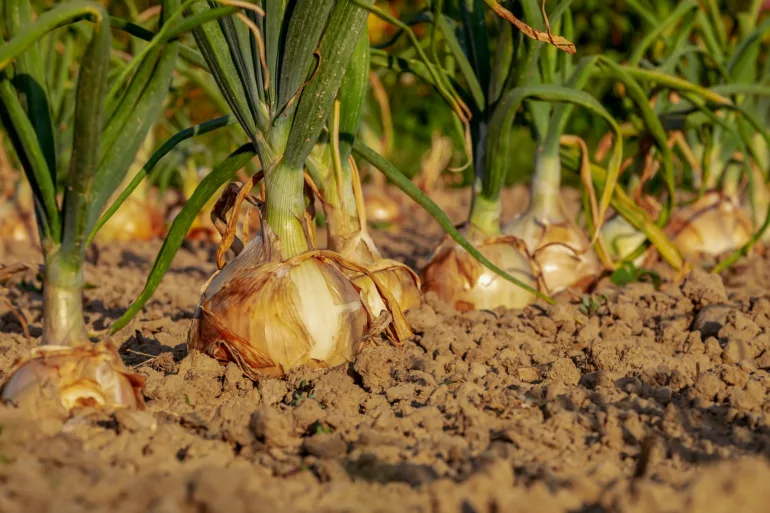TL;DR:
- The food and beverage industry has embraced AI to improve operations and increase efficiency.
- AI in the food industry includes technologies such as robotics and machine learning.
- Precision farming: AI helps bring precision to farming operations by analyzing past harvests and weather forecasts.
- Pricing strategy: AI can inform a more effective pricing strategy by quickly analyzing variables such as seasonality, competitor pricing, promotions, and customer demand.
- Mitigating unpredictability: AI can help mitigate the unpredictability of food supply chains by predicting sea vessel arrival times and other factors.
- Sustainability: AI has a positive impact on sustainability in the food and beverage industry by minimizing energy and water usage, reducing waste, and optimizing the use of existing stock.
- Maximizing yield: IoT devices combined with machine learning can optimize machine settings to maximize yield, which is crucial in the food and beverage industry where margins can be thin.
- AI is about connecting the dots and using data to create better, faster, and more profitable operations.
- The potential of AI in the food and beverage industry is immense, and businesses that embrace its capabilities are poised for success.
Main AI News:
The food and beverage industry has always been ahead of the curve in incorporating artificial intelligence (AI) to enhance its operations, from inventory management to food safety. The application of AI across the food supply chain results in a marked increase in efficiency, transforming the way food is produced, delivered, and consumed. With the ever-growing population in India, businesses are under increasing pressure to deliver safe food products, and AI provides a competitive advantage that cannot be replicated without its application.
AI in the food industry comprises various technologies, from robotics to machine learning. Here are a few ways the industry is using AI to its fullest potential:
Precision Farming: AI technologies are being used to bring precision to farming. For example, an AI system can analyze past harvests and weather forecasts to inform which fields need watering and when to use fertilizer. In the aquaculture sector, an AI system ensures accurate doses of feed are administered in shrimp farming, resulting in doubled production.
Pricing Strategy: AI can inform a more effective pricing strategy by quickly analyzing variables such as seasonality, competitor pricing, promotions, and customer demand to build a clear picture of pricing history and trends. This is essential in the food and beverage industry, where the cost of goods can fluctuate frequently, and it’s crucial to remain competitive while maximizing profits.
Mitigating Unpredictability: The unpredictability of food supply chains has had a major impact on food and beverage manufacturing, but AI can help mitigate this. For instance, AI tools can predict sea vessel arrival times, helping manufacturers to accurately forecast the arrival of raw ingredients. Additionally, AI can factor in considerations such as the time it takes for deliveries to unload at the factory, providing an even greater level of accuracy when it comes to scheduling production. This results in a more agile and predictable supply chain, helping businesses plan for all eventualities and stay ahead of the competition.
Sustainability: AI is having a positive impact on sustainability in the food and beverage industry. Businesses can use AI to minimize energy and water usage, reducing waste and increasing revenue. AI can also determine dynamic best-before dates, reducing waste and increasing profitability. In addition, innovative businesses are using AI to optimize the use of existing stock and still meet customer specifications, improving sustainability and boosting profitability.
Maximizing Yield: IoT devices combined with machine learning can optimize machine settings to maximize yield. AI can take into account numerous process parameters to help manufacturers maximize output at every step of the process. This is crucial in the food and beverage industry, where margins can be thin, and maximizing yield can make a significant impact on the bottom line.
AI is all about connecting the dots and making the most of the data generated by the food and beverage sector. As long as there is data, AI technologies can recognize trends and patterns and apply this learning and insight back to the business to create better, faster, and more profitable operations. As more businesses invest in AI technologies, suppliers can create more AI solutions, delivering the insight needed to maximize efficiencies and boost revenue. The potential of AI in the food and beverage industry is immense, and businesses that embrace its capabilities are poised for success in the years to come.
Conlcusion:
the food and beverage industry has been at the forefront of incorporating AI to enhance its operations and increase efficiency. The application of AI technologies, such as robotics and machine learning, across the food supply chain has brought about a marked increase in efficiency and transformed the way food is produced, delivered, and consumed.
AI has the potential to inform a more effective pricing strategy, mitigate unpredictability in food supply chains, and promote sustainability through minimizing energy and water usage, reducing waste, and maximizing yield.
As more businesses invest in AI technologies, suppliers can create more AI solutions, delivering the insight needed to maximize efficiencies and boost revenue. The potential of AI in the food and beverage industry is immense, and businesses that embrace its capabilities are poised for success in the years to come.

